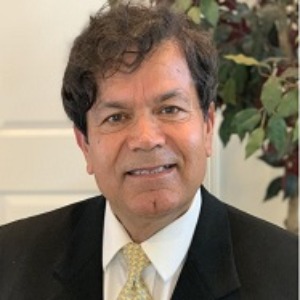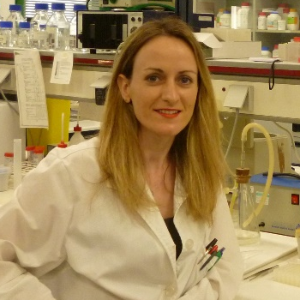Rajvir Dahiya, University of California San Francisco, United States
Current screening methods—radiological imaging, DNA-based tests, and pathological assessments—often fail to detect malignancies at early stages. Despite technological advances, gene-based diagnostics specifically designed for early cancer detection remain limited. To [....] » Read More







![Impact of matrix metalloproteinase [MMP]-2 (2735C>T) and tissue inhibitor of metalloproteinase [TIMP]-2 (2418G>C) gene polymorphisms with human papillomavirus-mediated cervical cancer: Emerging trends in gynecologic oncology Speaker at International Cancer Conference 2026 - Saumya Pandey](https://magnusconferences.com/cancer-oncology/uploads/speakers/saumya-pandey-6606.jpg)




Title : Will be Updated Soon..
Jose Manuel Cervera Grau, Preclinical Lab and Computational Drug Discovery Program, Relayer Biotech Inc, Spain
Will be Updated Soon...
Title : A case of papillary ductal carcinoma in situ coexisting with mucinous carcinoma of micro papillary structure of the breast: A pathologic consideration
Shinya Tajima, National Hospital Organization, Shizuoka Medical Centre, Japan
We would like to present a only case study: However, our important findings might lead to help the interpretations of “tumour microenvironment (TME)”. We herein presenting about 70-year-old female. She presented with a palpable mass in the upper inner quadrant of t [....] » Read More
Title : Survivorship and long term care in cancer
Mercy Osoro, National Cancer Institute of Kenya, Kenya
Background: With rising cancer incidence and expanding access to treatment, the population of cancer survivors is increasing. However, survivorship and long-term care remain fragmented, with many patients lacking structured follow-up, psychosocial support, and management of late [....] » Read More
Title : Chemotherapy induced amenorrhea among premenopausal breast cancer patients, prevalence, associated factors and health related quality of life in tanzania.
Mariam Ally Uledi, Bugando Medical Centre, Tanzania, United Republic of
Background: Globally, there is an increase in breast cancer (BC) diagnoses before the age of 40 years were these individuals are in their reproductive age. One of the most significant side effects of chemotherapy for premenopausal women with BC is Chemotherapy-induced Amenorrhea [....] » Read More
Title : Pomegranate peel extract sensitizes hepatocellular carcinoma cells to ionizing radiation, Induces apoptosis and inhibits MAPK, JAK/STAT3, β-Catenin/NOTCH and SOCS3 signaling
Nermeen Mohamed Elbakary, Egyptian Atomic Energy Authority, Egypt
Tumor resistance is typically blamed for the failure of radiotherapy and chemotherapy to treat cancer in clinic patients. To improve the cytotoxicity of tumor cells using radiation in conjunction with specific tumor-selective cytotoxic drugs is crucial. Pomegranate has received o [....] » Read More
Title : Whole genomic sequence for personalized treatments in radiation oncology
K R Muralidhar, Karkinos Healthcare, India
Introduction and Objective: Radiation therapy plays a central role in cancer management; however, its success is often limited by tumour radio resistance and the risk of late treatment-related toxicities, even with advanced technologies and across various forms of radiation and i [....] » Read More
Title : Implementation of a novel breast laparoscopic or robotic surgery curriculum
Yunjian, Sun Yat Sen University First Affiliated Hospital, China
Background: Over the past decade, Robotic and laparoscopic techniques in nipple-sparing mastectomy (NSM), have gained prominence in the field of breast surgery. However, the complexity of these procedures necessitates systematic training programs to ensure surgical competency. Th [....] » Read More
Title : CES2-Armed oncolytic adenovirus: A multifunctional immunotherapeutic platform integrating oncolysis and immune modulation for enhanced cancer therapy
Abhishek Swarnakar, CSIR Indian Institute of Chemical Biology, India
Tumor-infiltrating lymphocytes (TILs) strongly influence clinical outcomes in many solid cancers, yet ovarian tumors frequently retain an immunologically “cold” phenotype that prevents effective immune entry and sustains immune evasion. Although oncolytic adenoviruses [....] » Read More